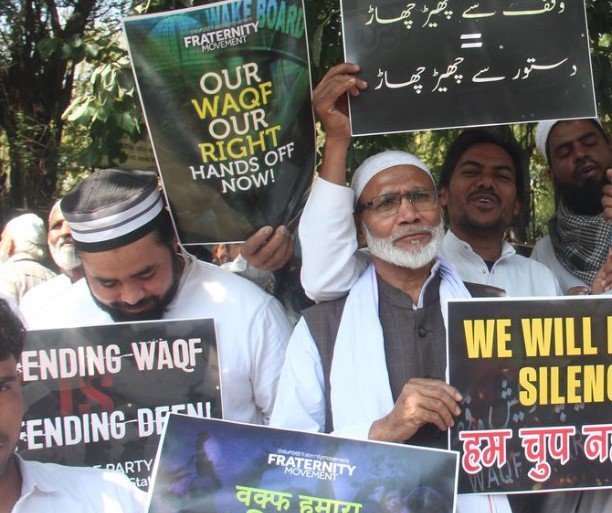A storm is brewing in the Indian Parliament today, April 2, 2025, as the government prepares to introduce the contentious Waqf (Amendment) Bill in the Lok Sabha. Both the ruling party and the opposition have issued whips to ensure full attendance, signaling the high stakes involved.
What’s the Waqf (Amendment) Bill All About?
At its core, the Waqf (Amendment) Bill seeks to revamp the management of waqf properties across India. The government argues that the existing Waqf Act of 1995 has shortcomings that hinder effective administration. Proposed changes include renaming the Act, updating definitions related to waqf, streamlining the registration process, and integrating technology to manage waqf records more efficiently. The aim, according to officials, is to enhance transparency and accountability in the handling of these properties.
Diverse Reactions from Political Quarters
The introduction of the Bill has elicited a spectrum of reactions. Union Parliamentary Affairs Minister Kiren Rijiju has labeled it a “historic day,” emphasizing the government’s commitment to reform. He contends that opposition to the Bill is politically motivated and not based on its actual content.

On the flip side, the opposition, under the banner of the Indian National Developmental Inclusive Alliance (INDIA), is gearing up for a robust challenge. Leaders from this coalition convened recently to strategize their approach, unanimously deciding to vote against the Bill. They argue that the legislation is targeted and fundamentally conflicts with constitutional provisions.
Key Provisions Stirring the Pot
Several aspects of the Bill have become flashpoints:
-
Representation on Waqf Boards: The Telugu Desam Party (TDP), an ally within the National Democratic Alliance (NDA), is advocating for amendments that would allow state governments to decide on the inclusion of non-Muslim representatives on Waqf Boards. This proposal underscores the delicate balance of religious and administrative considerations inherent in the Bill.
-
Financial Contributions: The Bill proposes reducing the mandatory contribution of waqf institutions to waqf boards from 7% to 5%. Proponents argue this change would free up more funds for charitable activities, while critics question its potential impact on the financial health of waqf boards.
-
Property Claims: Another significant amendment involves removing Section 40 from the original Act. This change would prevent waqf boards from unilaterally declaring properties as waqf, aiming to curb instances where entire villages or large tracts of land have been controversially designated in the past.
The Road Ahead: Numbers and Negotiations
With the NDA holding a numerical advantage in the Lok Sabha, the passage of the Bill seems plausible. However, the opposition is not backing down, planning to engage actively in the debate to voice their concerns. Both sides have issued whips to their MPs, underscoring the importance of this legislative battle. The Times of India
As the clock ticks towards the Bill’s introduction around noon, all eyes are on Parliament. The coming hours promise intense discussions, impassioned speeches, and a display of the vibrant, albeit contentious, democratic processes that define India’s legislative landscape.
